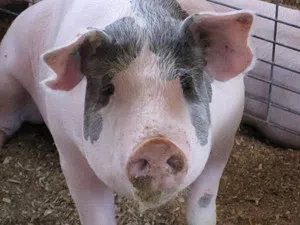More than one week ago, Dominican Republic officials announced the outbreak of African Swine Fever (ASF) in the country. National Pork Board’s Acting Chief Veterinarian Patrick Webb, assures that the National Pork Board (NPB) is watching the situation with the help of government agencies.
“It’s of great concern to not only the United States but the Caribbean countries, as well as Mexico, and we’re watching this very, very closely. Some of the things that are in our favor, currently, is that the Dominican Republic and then also Haiti who make up the island of Hispaniola, they’ve had classical swine fever in their swine herds for greater than 15 years, Webb said. “There has been a lot of efforts put into mitigations to stop classical swine fever from coming to the United States by USDA and Customs and Border Protection, so in some ways, that’s afforded us protection as well with ASF.”
NPB is using Pork Checkoff money to prevent any potential disease outbreak within the industry, specifically by encouraging early detection and biosecurity measures. “We want to make sure that producers know what ASF looks like, and we want them to know how to report, we want them to make sure that they have biosecurity plans in place, and that they’re reviewing those and making sure that they’re being abided by,” he explained.
Webb dove a little deeper into the biosecurity methods farmers should be using. “Producer’s biosecurity plan should have measures in place to make sure that for instance, pork containing meat products aren’t brought on to the farm, people have not traveled to areas where these diseases are and allowed back on the farm. There’s some real basic, solid biosecurity, prevention biosecurity stuff that they really need to double down on right now to make sure that they’ve done everything to prevent exposure to their herd,” Webb said.
According to the World Organization for Animal Health, the spread of ASF in the Dominican is the first outbreak of its kind detected in the region in almost 40 years.





